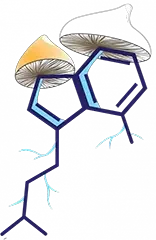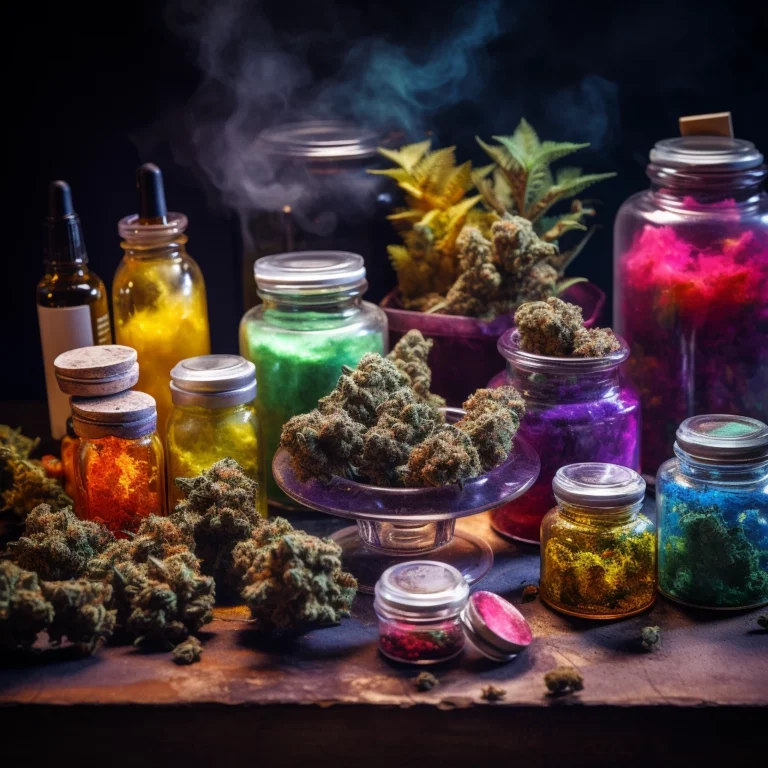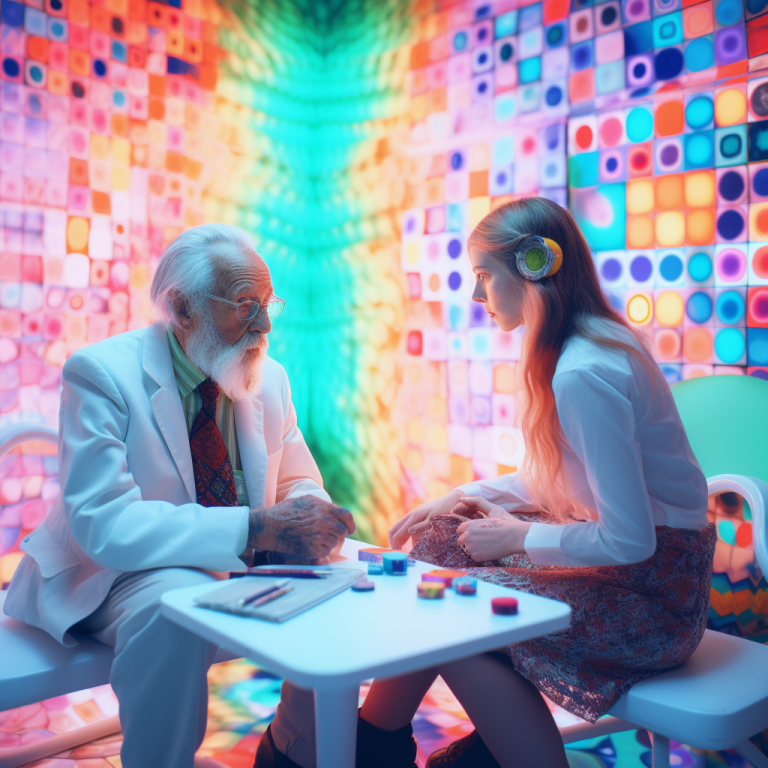The Commencement of our Journey
A tale of Lysergic Acid Diethylamide, commonly known as LSD, originates in the era of 1960s, an epoch renowned for its counterculture movements. It was in these times that the potent psychedelic drug first flourished. In recent moons, however, there has been a blossoming interest in the practice of microdosing – an act of partaking sub-perceptual amounts of a substance, specifically for its speculated therapeutic consequences. Our journey now, shall take us through the landscape of LSD microdosing, the sciences it draws upon, the research surrounding it, its latent healing properties, and the ethical dilemmas and risks it presents.
The Inception of LSD
The creation of LSD traces back to the Swiss chemist, Albert Hofmann, who first synthesized the substance in 1938. The potent mind-altering capacities of the compound were discovered in the decade that followed. Although the societal views and legal standing of the substance have oscillated over time, the effects of its standard doses, and the potential for misuse have remained constant. Its recreational use and deployment in psychotherapy is well-documented, nevertheless.
The Concept of Microdosing
The act of microdosing is characterised by administering such minimal doses of a substance that they evade producing comprehensive physical effects, while still adequately stimulating a cellular response. When one speaks of LSD, it generally refers to consuming about 10-20 micrograms, a small fraction of the ‘trip’ dose. This practice has gained increased acceptance, being promoted as a means to augment creativity and productivity, and catalyze subtle shifts in mood or cognition, devoid of intense hallucinatory experiences.
The Scientific Methodology behind LSD Microdosing
LSD functions by interfacing with the brain’s serotonin receptors, with its effects emanating primarily from the prefrontal cortex, a region responsible for perception, cognition, and mood. Microdosing aspires to lightly trigger these receptors, potentially initiating subtle yet significant alterations in these realms. While not as profound or immediate as a full LSD dose, microdosing may deliver some benefits of the drug, sans the overpowering psychedelic experience.
The Current Studies on LSD Microdosing
As of 2021, a significant portion of research on LSD microdosing remains in its initial phases. Some studies hint at possible improvements in mood and creativity, while others underscore the necessity for more stringent, controlled experiments. A 2019 review in the “Therapeutic Advances in Psychopharmacology” journal presented some encouraging results, but reiterated the requirement for further investigation due to methodological limitations in the existing studies.
The Hypothetical Healing Properties
Emerging research proposes that microdosing LSD could potentially ameliorate conditions like depression, anxiety, and PTSD. A study published in the “Journal of Psychopharmacology” in 2020 unveiled some positive impacts of microdosing on mental health scores in a self-reporting sample. Moreover, microdosing might enhance creativity and problem-solving abilities. Nonetheless, the research in these areas is nascent and necessitates more rigorous studies.
The Perils and Unintended Consequences
Despite being generally safer than full doses of LSD, microdosing is not devoid of hazards. Potential physical side effects comprise headaches, insomnia, and nausea. Psychological risks include the potential activation of dormant psychiatric disorders in vulnerable individuals. Further, the illegality of LSD in many regions presents potential legal hazards.
The Unfolding Research and Implications for the Future
Research in progress continues to investigate the multifarious aspects of LSD microdosing, ranging from its potential utility in treating various mental health disorders to its influence on creativity and cognition. These studies might revolutionize our comprehension of the drug’s therapeutic potential. However, implications for society, such as evolving perspectives on drug use and mental health treatment, may also be transformed as our understanding of microdosing matures.
The Moral Dilemmas
Self-administration of substances such as LSD provokes ethical conundrums, as the potential for harm coexists with potential benefits. In the realm of science, the ethics of researching psychedelics have incited fervent debates, with some proponents arguing that the potential benefits tip the scale in favor. If microdosing were to gain more mainstream acceptance, moral considerations related to access, education, and regulation would necessitate due consideration.
The Terminus of our Exploration
The potential therapeutic benefits and risks of LSD microdosing mark a burgeoning area of interest in scientific research. While preliminary findings suggest an array of potential benefits, more meticulous, controlled studies are needed to validate these effects and comprehend the associated risks. The future of LSD microdosing in therapeutic contexts is filled with promise, but also necessitates cautious navigation through the intricate maze of ethical and legal challenges.
[gap height=”130px”]
[ux_image id=”8388″]
[gap height=”130px”]
We hope that you have gained a little more understanding and wisdom after reading through our article about LSD. We hope that it has inspired you to explore the multitude of possibilities through LSD.
Shroomhub is your trusted online source in Canada for all things Psychedelic, from Magic Mushrooms, LSD and even DMT, take advantage of our weekly deals and bargain prices you wont find anywhere else!
[gap height=”130px”]
[message_box]
[row v_align=”middle” h_align=”center”]
[col span=”9″ span__sm=”12″]
Author
Freelance Writer
Leo Thomas
[/col]
[col span=”2″ span__sm=”12″ align=”center”]
[button text=”Linkedin” color=”white” style=”outline” radius=”99″ link=”https://www.linkedin.com/in/leo-thomas-24b827279/”]
[/col]
[/row]
[/message_box]






